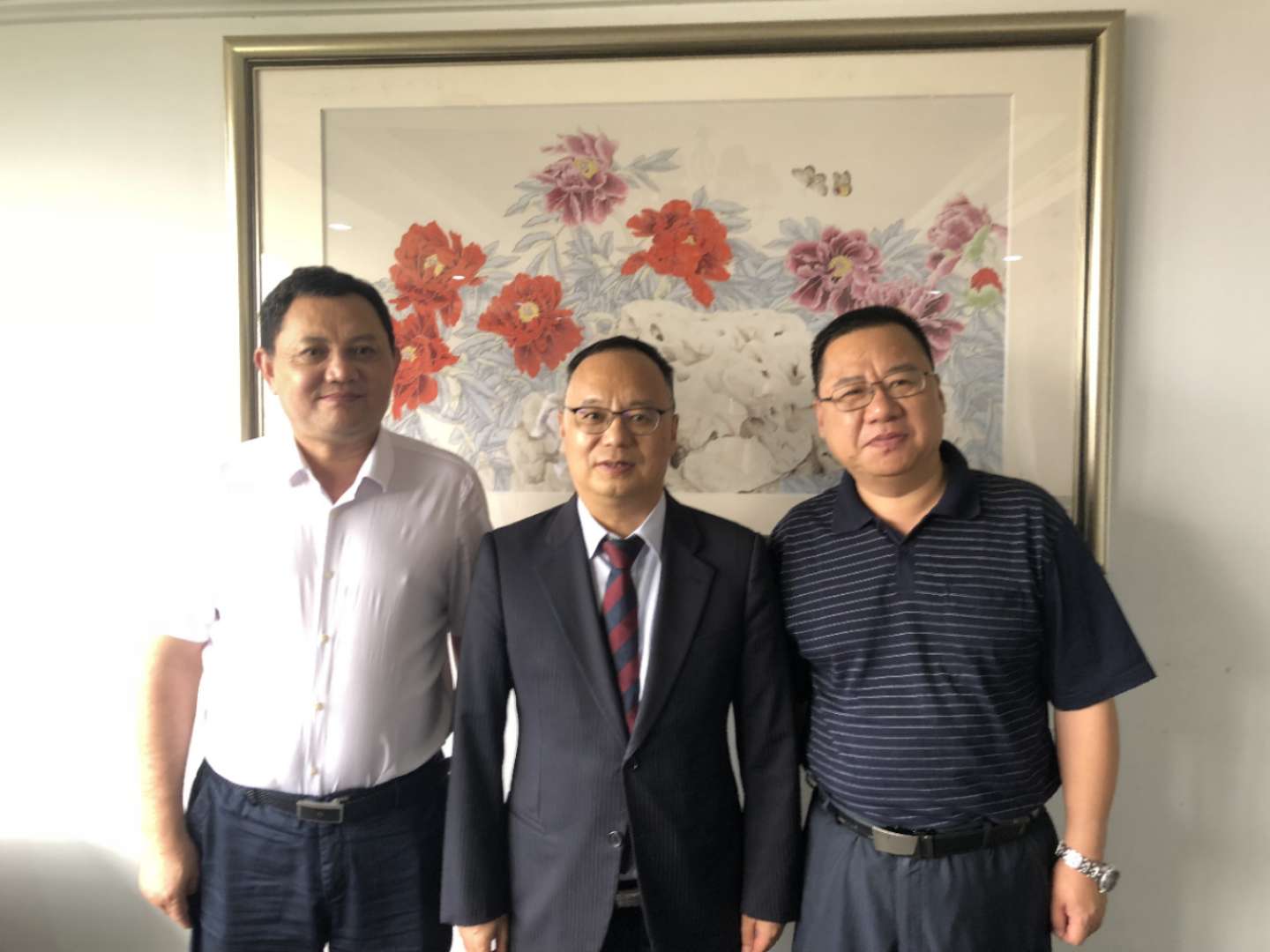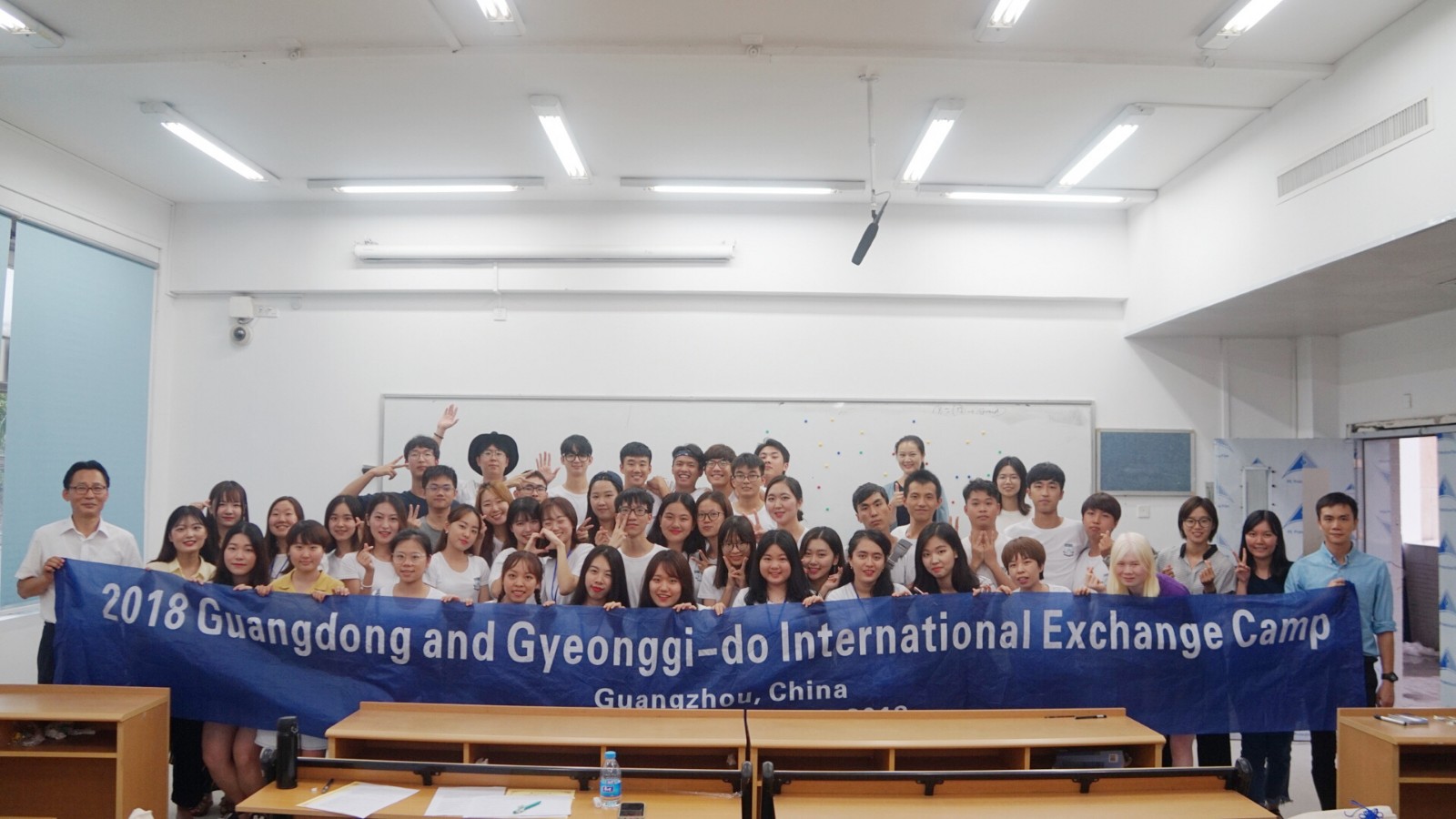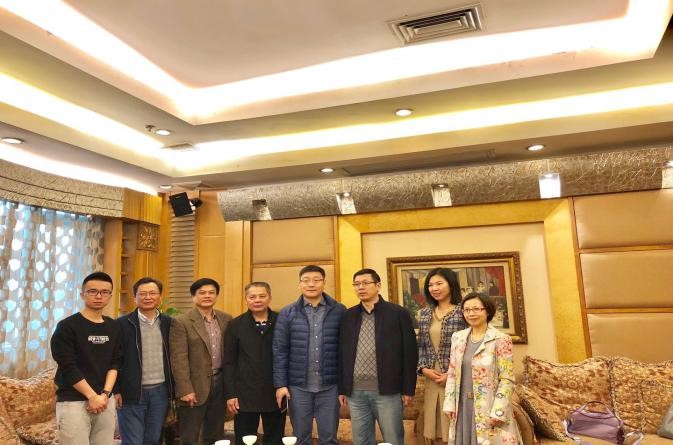
Likes
SCNU organized and held the 16th International Conference on Knowledge Science, Engineering and Management (KSEM 2023) from August 15 to 18 in Guangzhou.
This themed conference is also an interdisciplinary forum where researchers in the fields of knowledge science, knowledge engineering, and knowledge management can exchange ideas and report state-of-the-art research results.
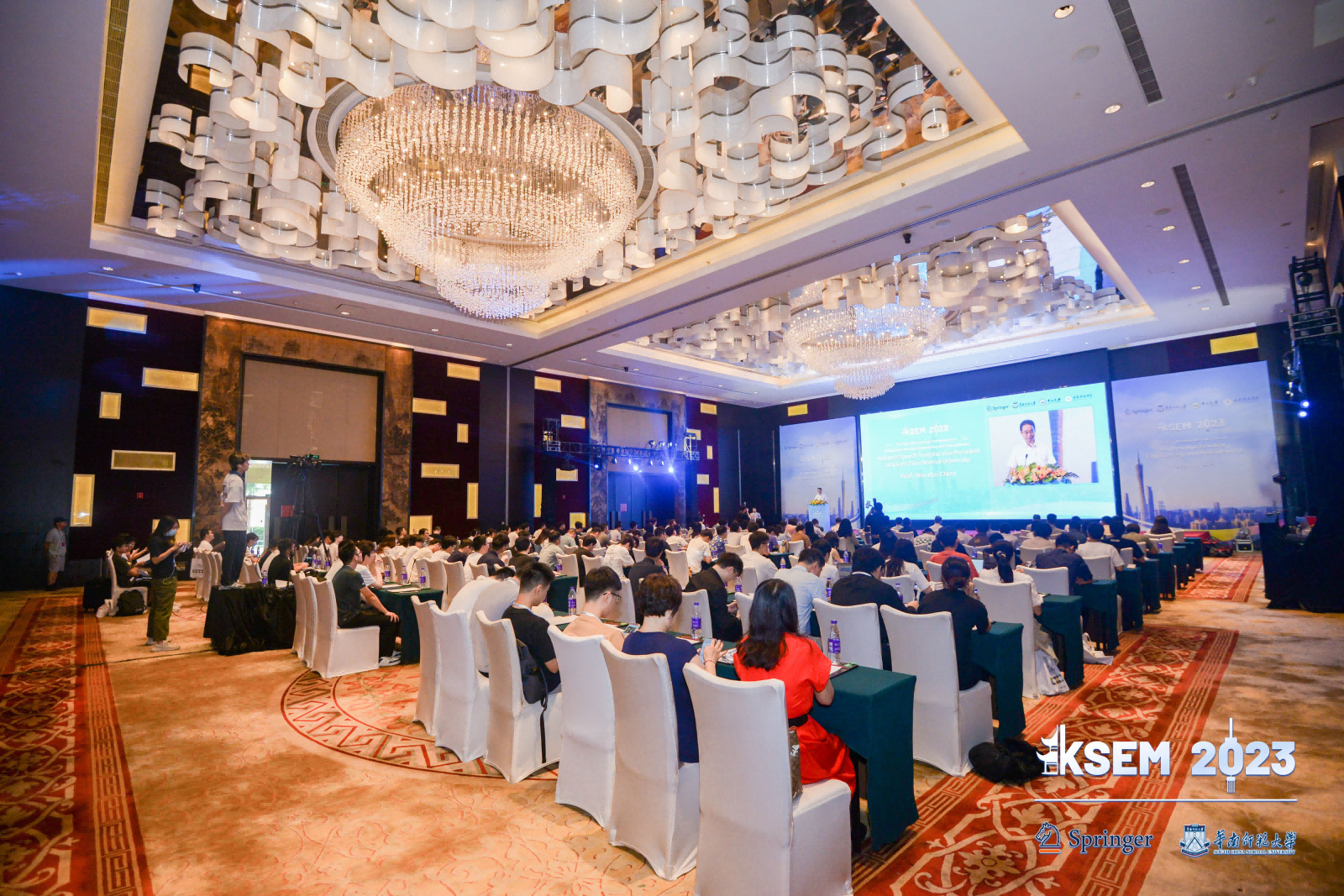
Photo of KSEM 2023 on the scene.
Lu Ruqian, an academic of the Chinese Academy of Sciences and a renowned computer scientist, sent specially-made cards for this conference and delivered a speech via video. He briefly introduced the development of the KSEM, shared his understanding of Computer Science and Artificial Intelligence, and wished the 2023 KSEM Conference a great success.
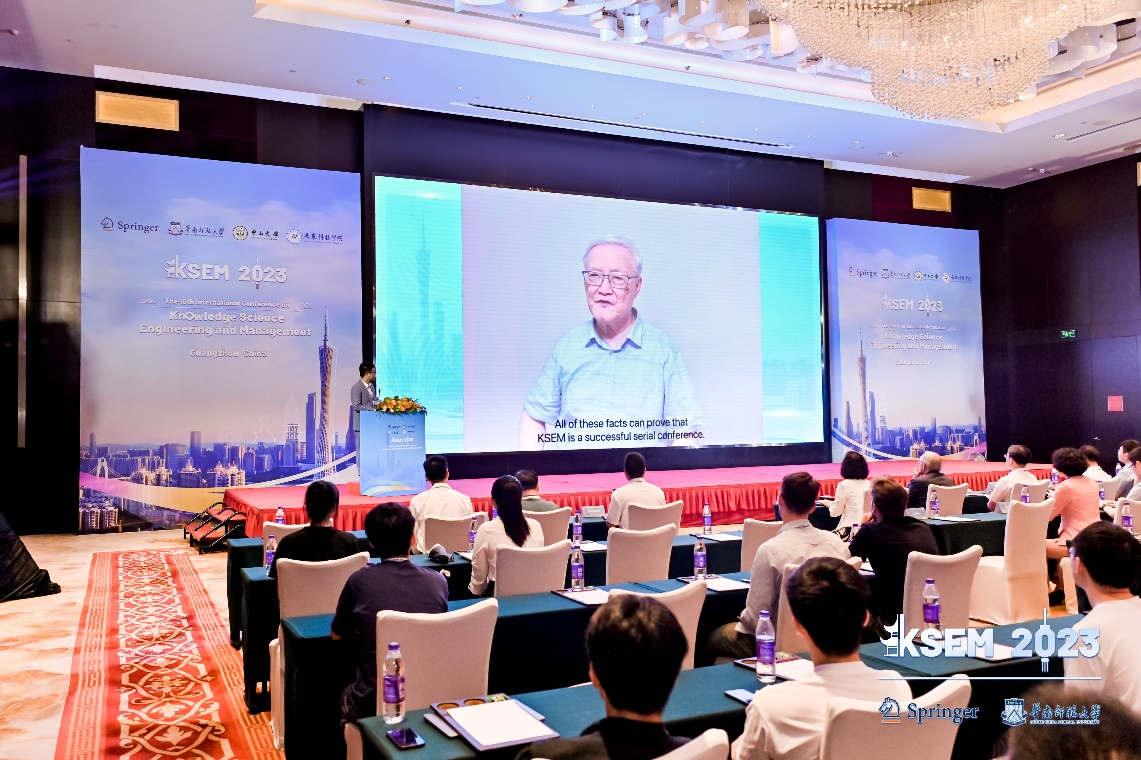
Lu Ruqian gives a speech via video.
Chen Wenhai, vice president of SCNU, extended a warm welcome and sincere gratitude to the guest experts and other participants present. In his speech, he presented SCNU's history and elaborated on the achievements of the application of Computer Science in various areas, including talent cultivation, scientific research, integration between industry and education, social services and so on.
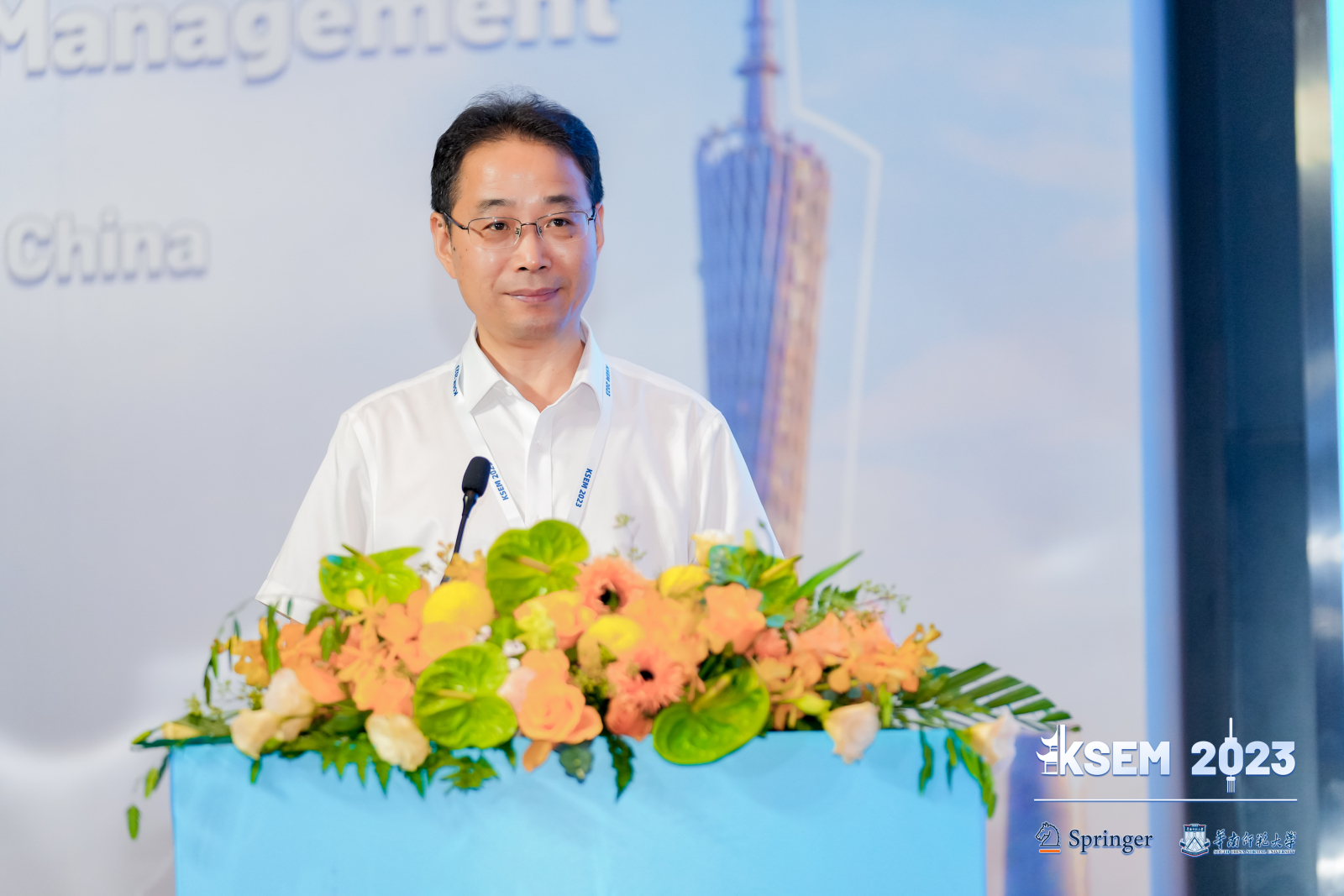
Chen Wenhai welcomes all participants and extends his gratitude.
Professor Jin Zhi of Peking University reviewed previous serial conferences of KSEM. She explored the trend in the theoretical research and practical application of Knowledge Science, Engineering and Management, and expressed her hope for the subject's future development.
All the accepted papers have been published by Springer, according to Professor Bi Yaxin, who made a speech at the conference and introduced the contribution, review and selection of the papers.
In the report session, Professor Witold Pedrycz of the University of Alberta gave a keynote speech titled "Credibility of Machine Learning Through Information Granularity". He touched on the numerous and far-reaching developments and applications of Machine Learning (ML) in today's context and attached great importance to the design and evaluation mechanisms of ML architecture.
In terms of how to improve the credibility of the ML model, Professor Witold Pedrycz advocated that the researchers could make use of Granular Computing (GrC), a general computation theory for effectively using granules such as classes, clusters, subsets, groups, and intervals to build an efficient computational model for complex applications with huge amounts of data, information, and knowledge.
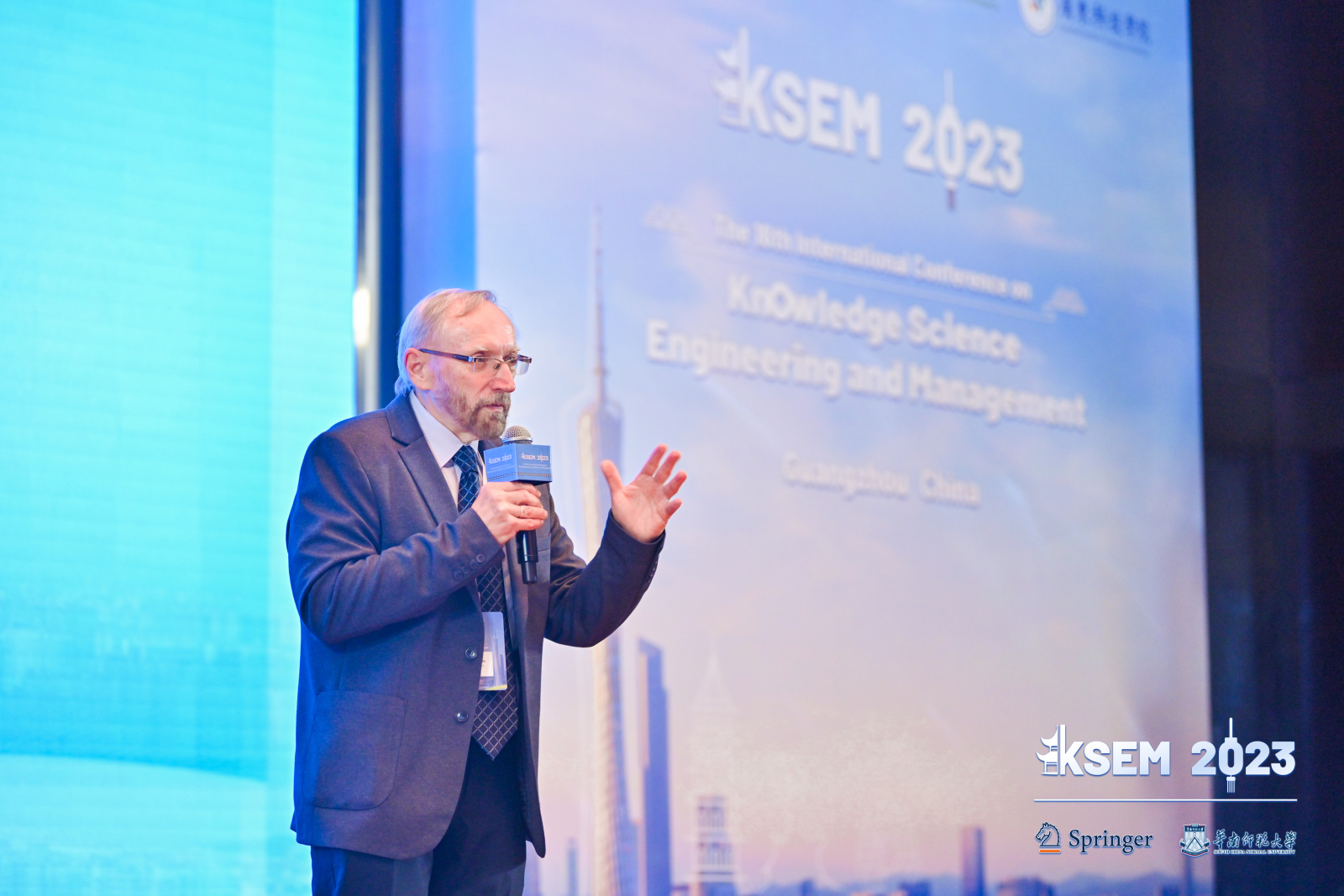
Professor Witold Pedrycz reports on Machine Learning through Information Granularity.
Tang Jie, a professor at Tsinghua University, was one of the invited speakers. In his speech "ChatGLM: Run Your Own 'ChatGPT' on a Laptop", he talked about how his team built GLM-130B, a bilingual (English and Chinese) pre-trained language model with 130 billion parameters. Based on GLM-130B, they have developed ChatGLM, an alternative to ChatGPT. Now the small version ChatGLM-6B has been deployed and has gained popularity, which makes it possible for everyone to use a ChatGPT, as Professor Tang mentioned in his lecture.
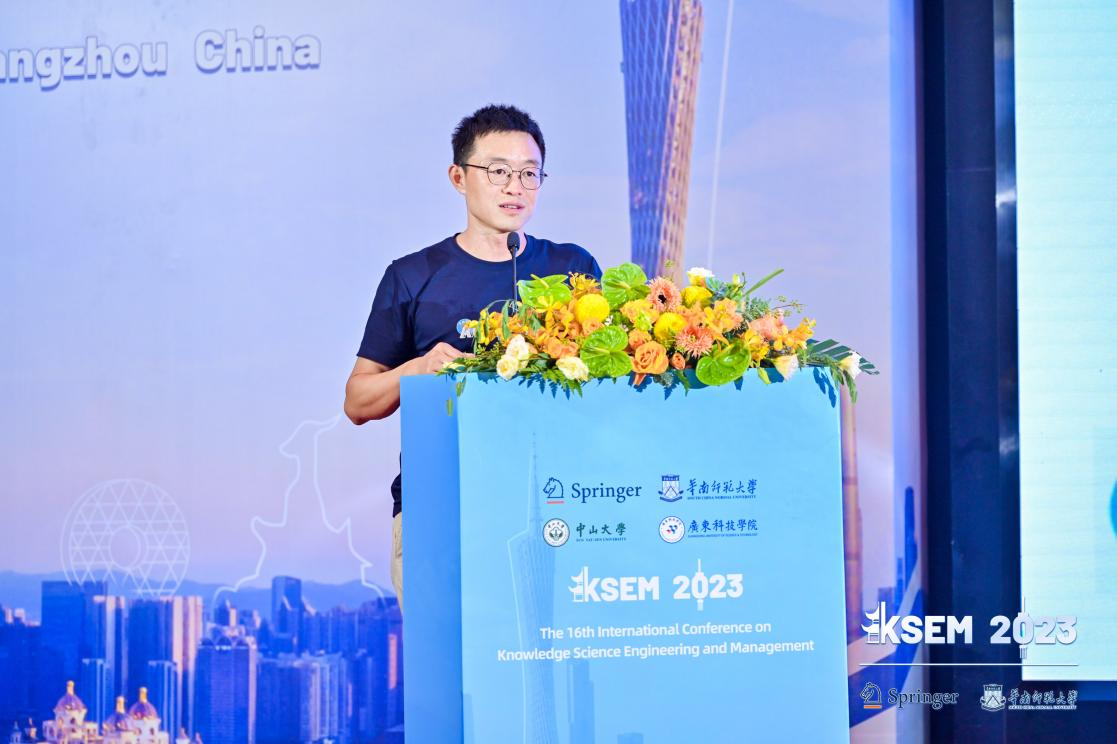
Professor Tang Jie shares the process of developing "GLM-130B" and "ChatGLM".
Additionally, other three experts, Professor Zhou Zhihua of Nanjing University, Professor Gang Li of Deakin University and Professor Geoff Webb of Monash University, also reported on Artificial Intelligence and Knowledge Science, Engineering and Management respectively.
Twenty-five sub-forums were also held during these four days. Scholars from different fields shared their research results on the subjects of Knowledge Science, Engineering and Management that relate to artificial intelligence, bringing new ideas and techniques to these disciplines.
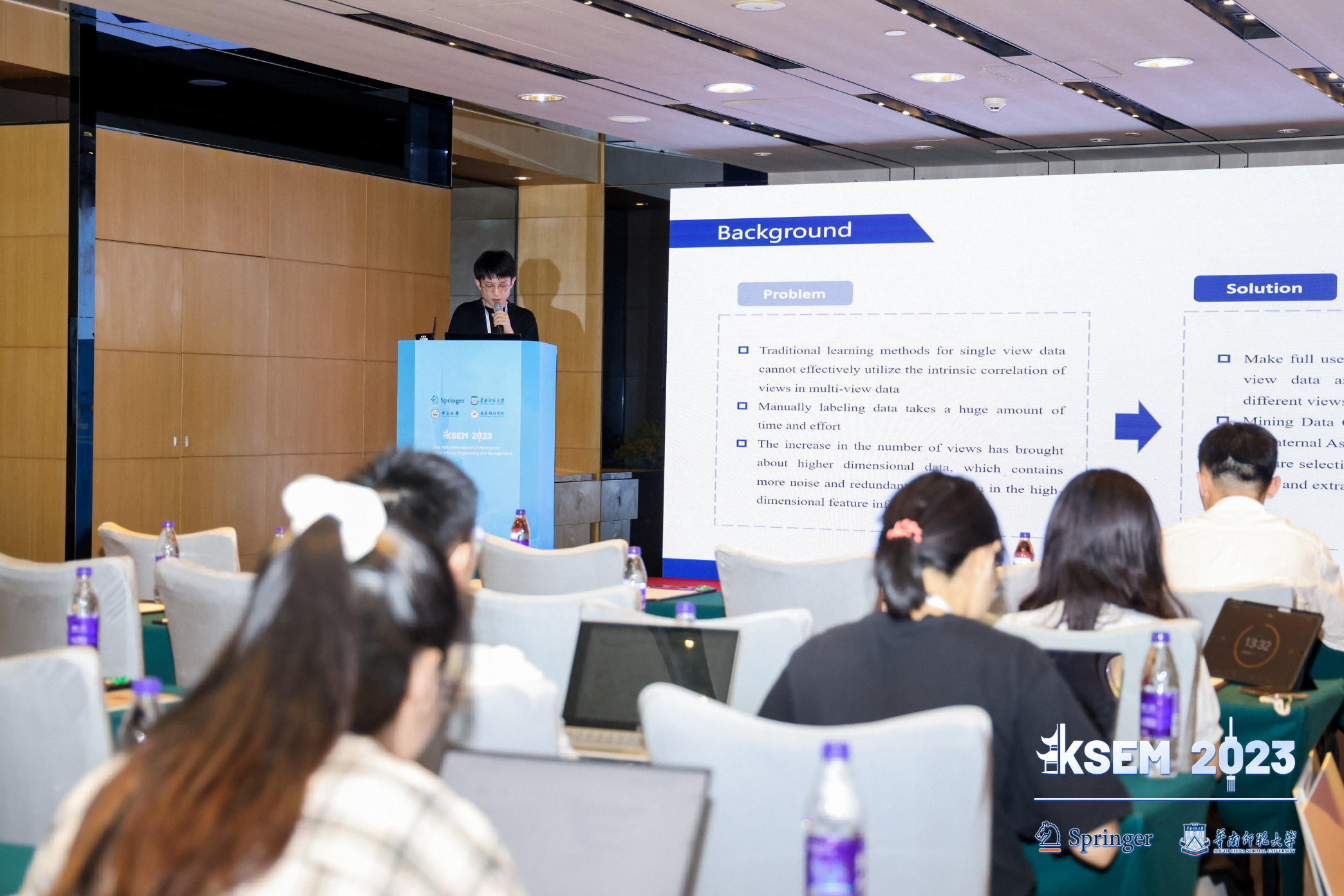
A scholar gives a presentation about his research at a sub-forum.
Six Best Paper awards were presented at the conference, including a "Best Paper Runner Up Award" for SCNU doctoral student Chang Chao's paper Explainable Multi-type Item Recommendation System based on Knowledge Graph.
The event facilitates exchanges and cooperation among experts at SCNU and scholars in the same field at home and abroad. Through this conference, SCNU will continue to advance Computer Science and Artificial Intelligence while developing the discipline of Computer Science and cultivating professionals in related fields.

A group photo of all the participants.
KSEM 2023 is the sixteenth in this series, which builds on the success of previous events of the International Conference on Knowledge Science, Engineering and Management. Established by Lu Ruqian, the KSEM series is on the list of China Computer Federation (CCF) recommended Conferences (C series, Artificial Intelligence). The proceedings of KSEM 2023 will be published in the Springer Lecture Notes in Artificial Intelligence volume.
Click to see more about KSEM 2023:
Source from SCNU News Center
Translated by Li Jun, Luo Xiaoying
Proofread by Edwin Baak
Edited by Wang Yingmin
What to read next:



